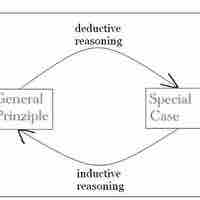Chapter 15
Methods of Persuasive Speaking
By Boundless

In theory, people tend to select specific aspects of exposed information based on their pre-existing perspective, beliefs, attitudes, and decisions.
The expectations for both the speaker and the effectiveness of the speech should be tailored for each speech.

Appeals to empathy and sensitivity can be exceedingly effective, but only if used correctly.

The two primary kinds of appeals are evidential and emotional appeals.

Credibility is defined as the objective and subjective components of the believability of a source or message.

Experience, training, and associations and connections are all important factors that can boost credibility.

If you want to build credibility with your audience, you must demonstrate that you are a person of character.

Credibility appeals, while an effective form of persuasive speaking, carry a unique set of ethical challenges and considerations.

Evidence refers to the available body of facts or information indicating whether a belief or proposition is true.

Deploy accurate, relevant, and thorough evidence strategically in order to most effectively argue your point.

Persuasive speakers have an ethical duty to consider opposing viewpoints and evidence before being sure that theirs are correct.

Apply two different lines of reasoning—inductive and deductive—to consciously make sense of observations and reason with the audience.

A rational appeal uses logical arguments and factual evidence to persuade individuals.

A fallacy is an error in reasoning; there are two basic categories of fallacies--formal and informal.

An emotional appeal is used to sway the emotions of an audience to make them support the speaker's argument.

Finding words to match the speech context and audience's disposition is essential to producing an effective emotional appeal.

When you make emotional appeals avoid unethical tactics, such as exploitative manipulation.
